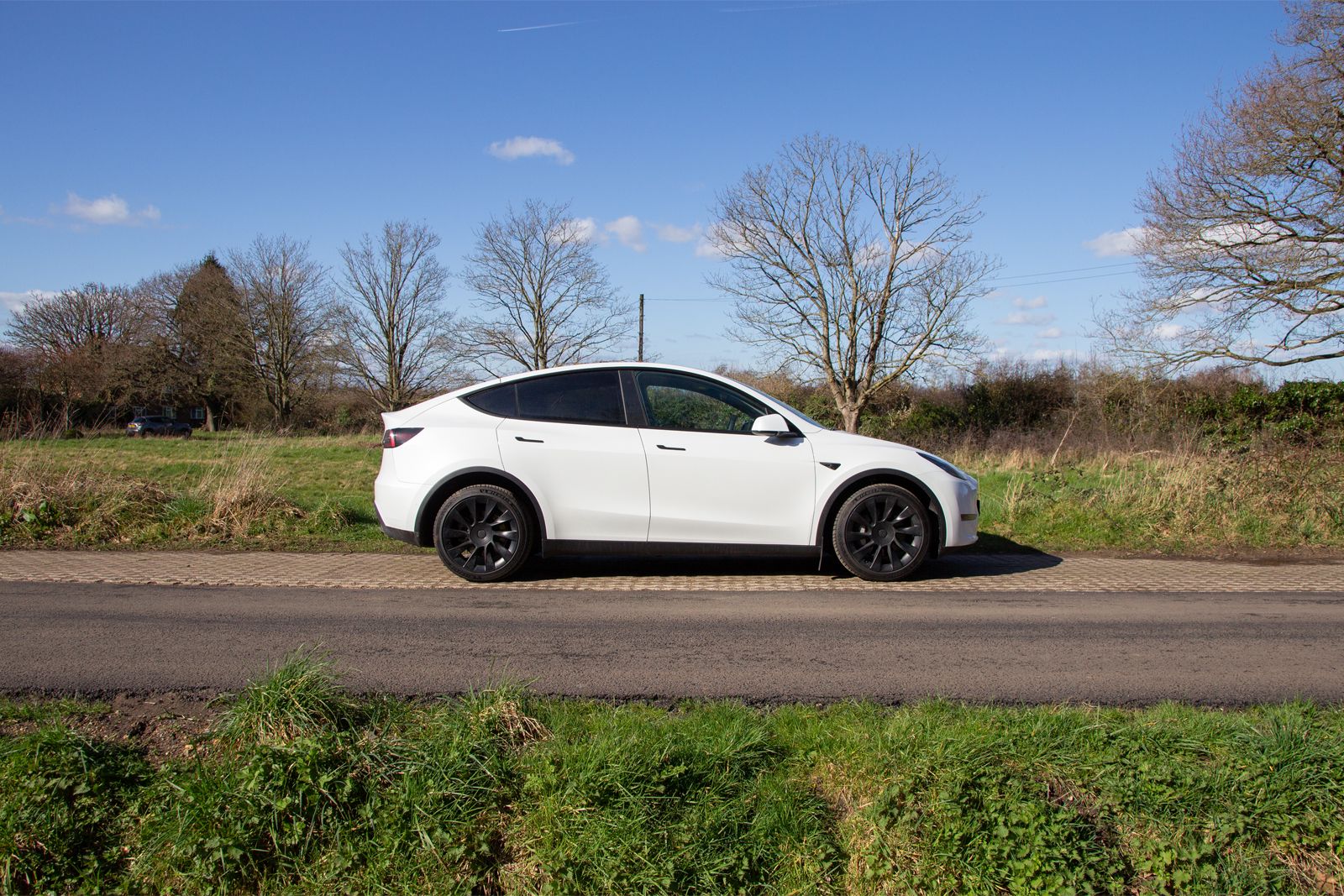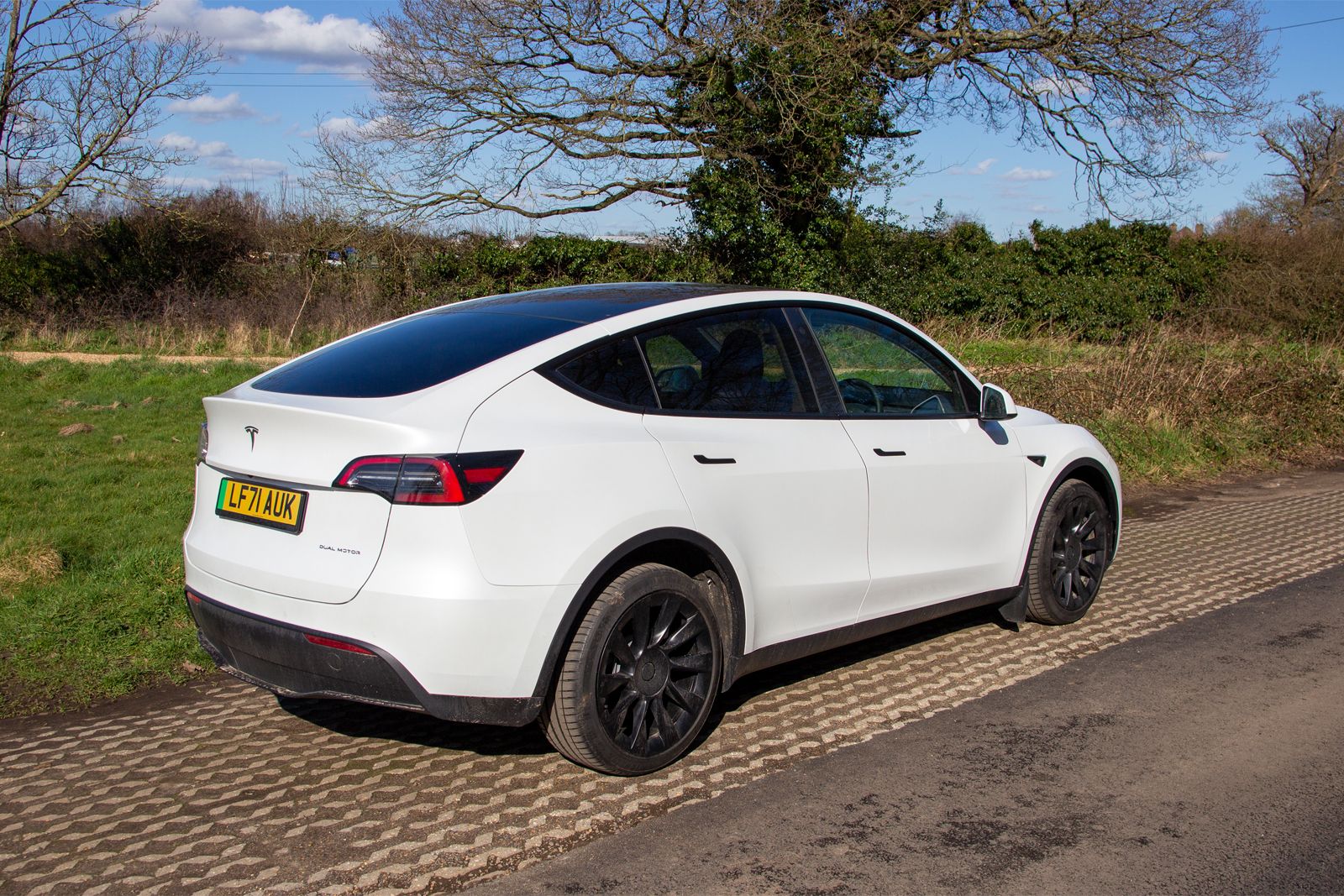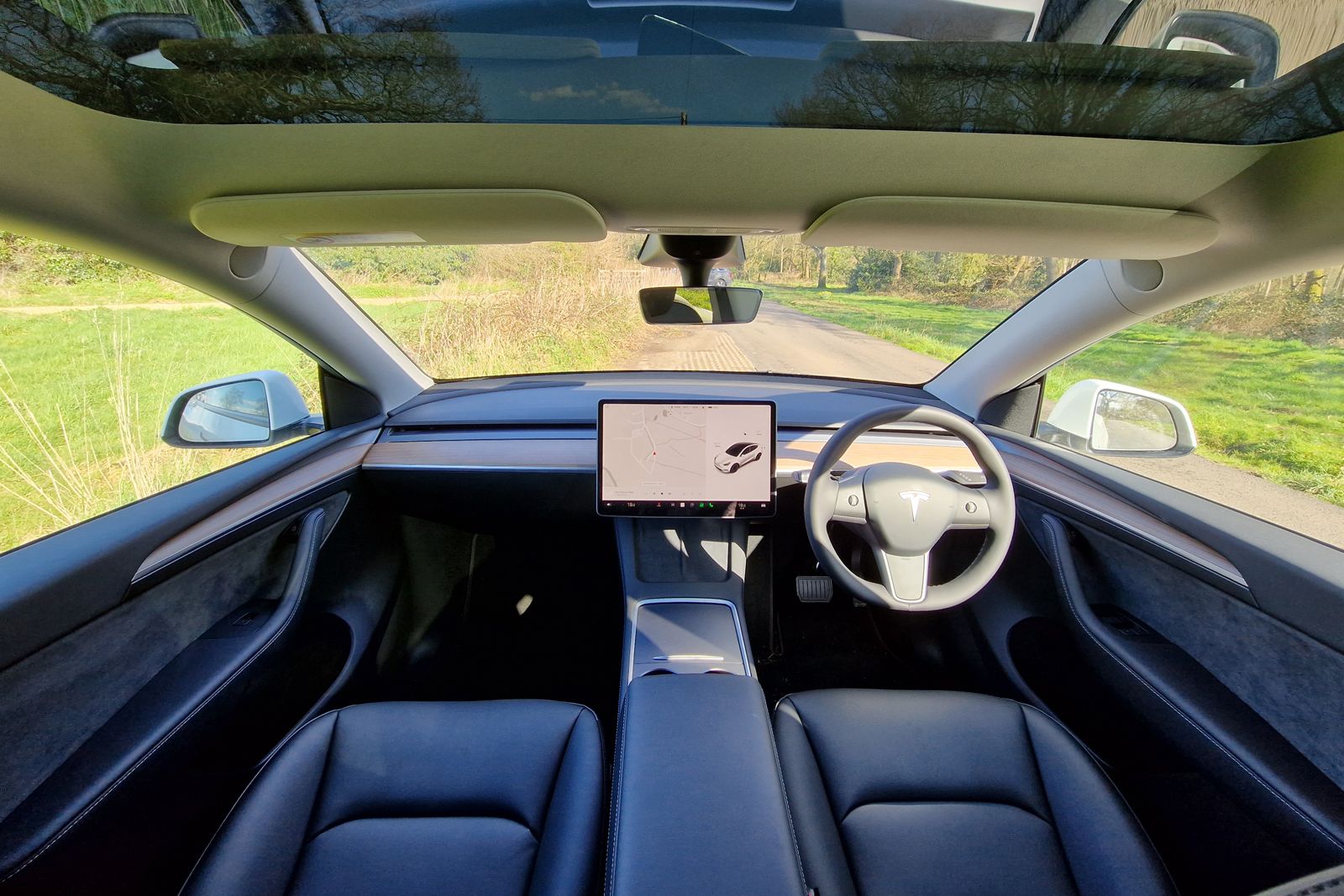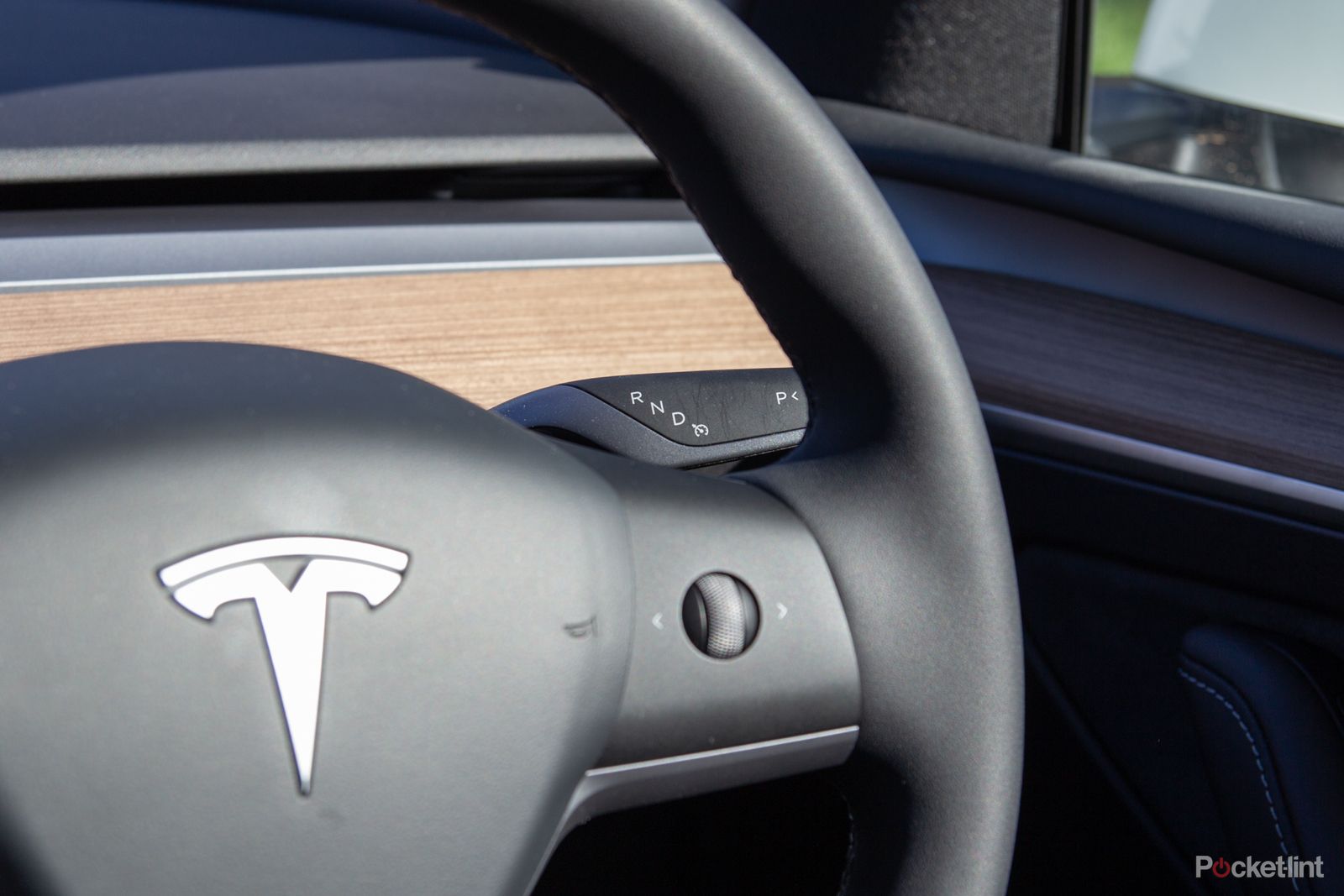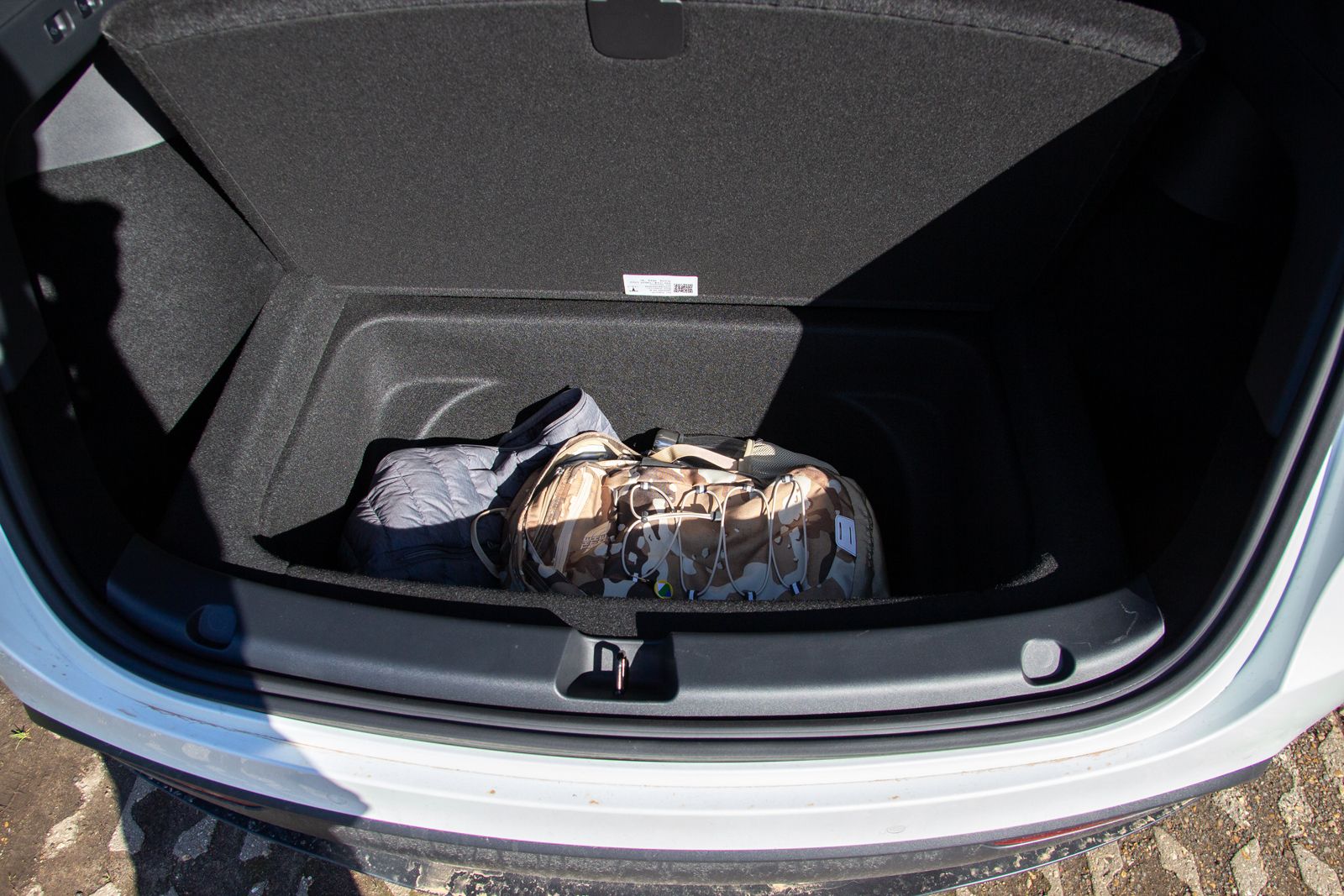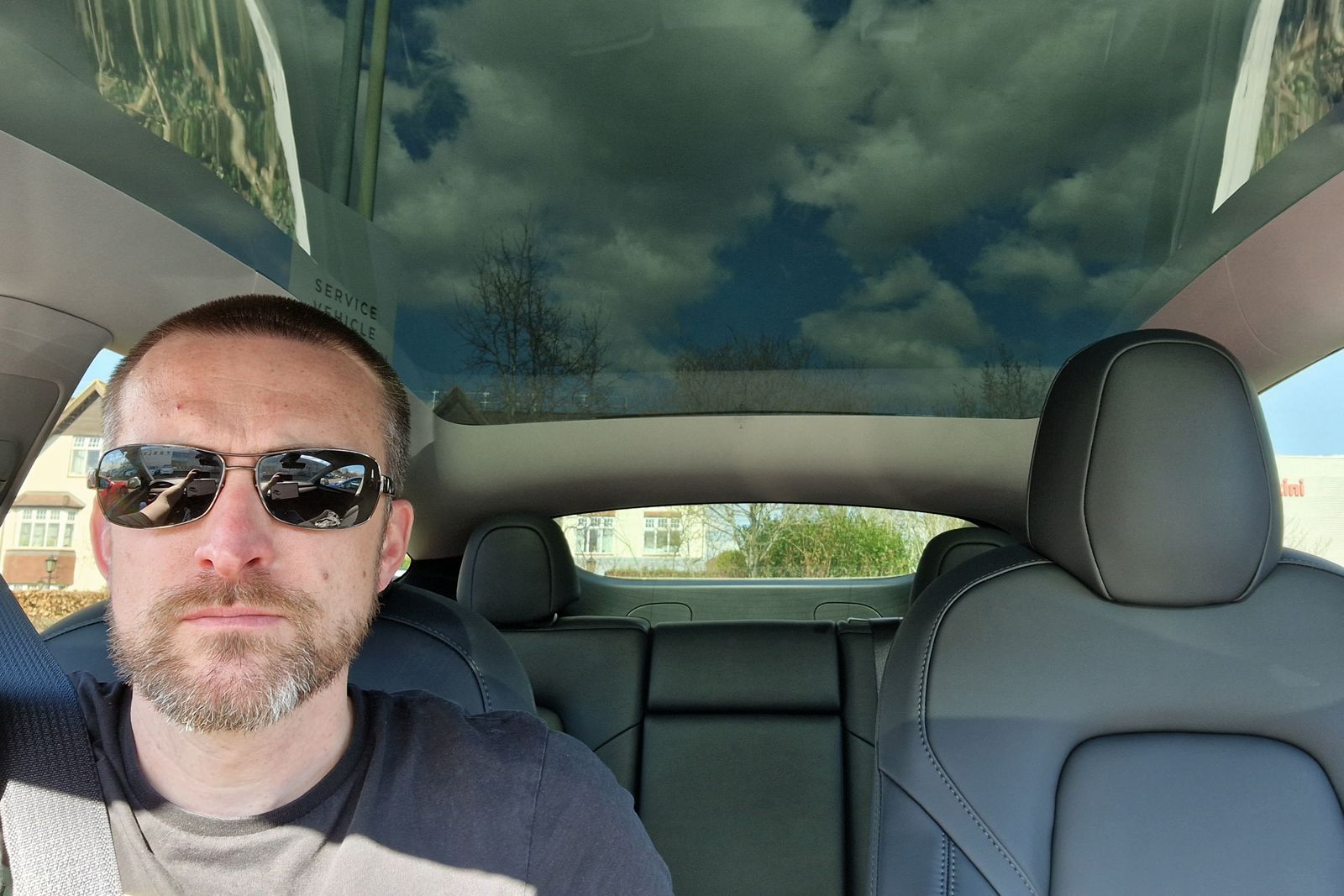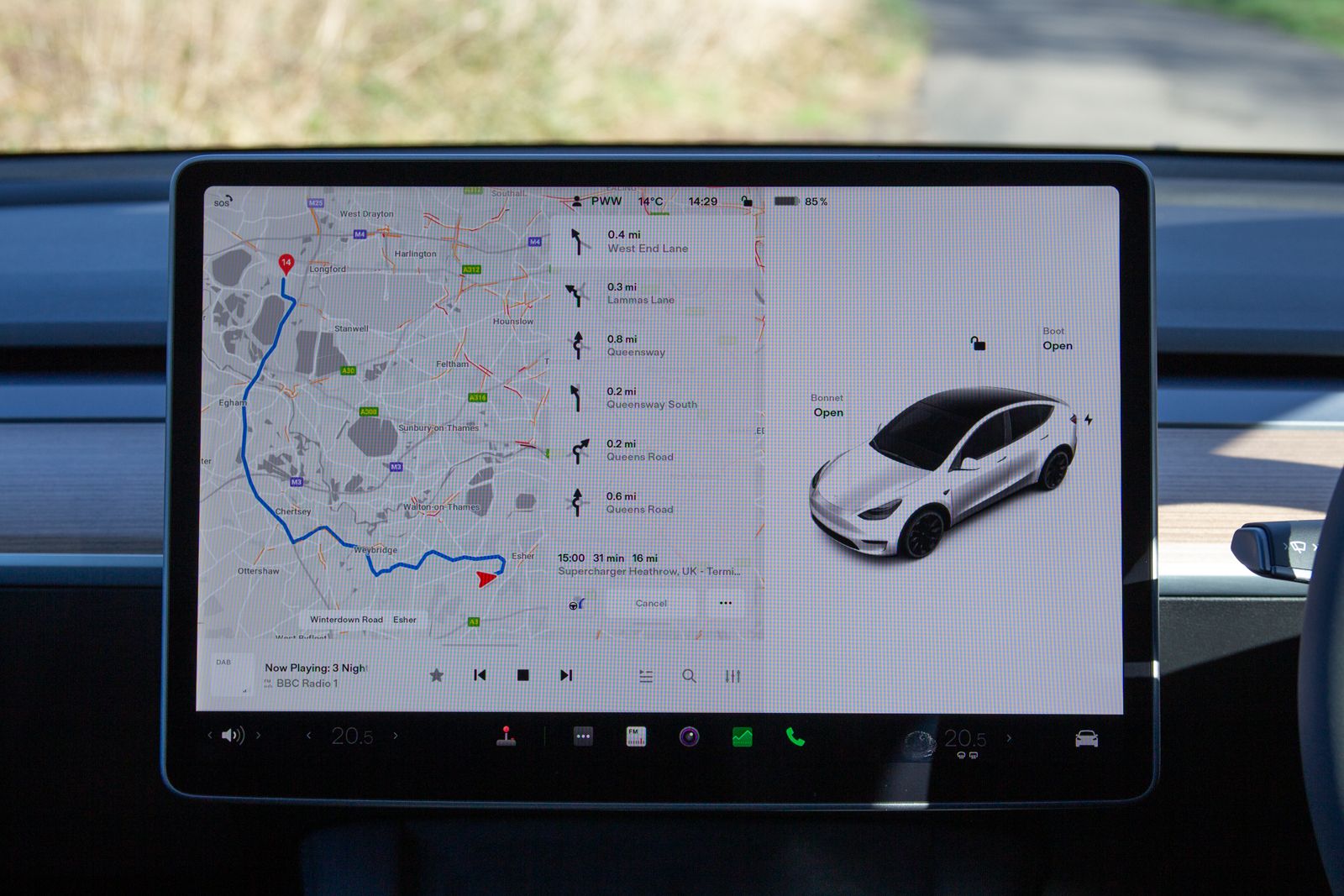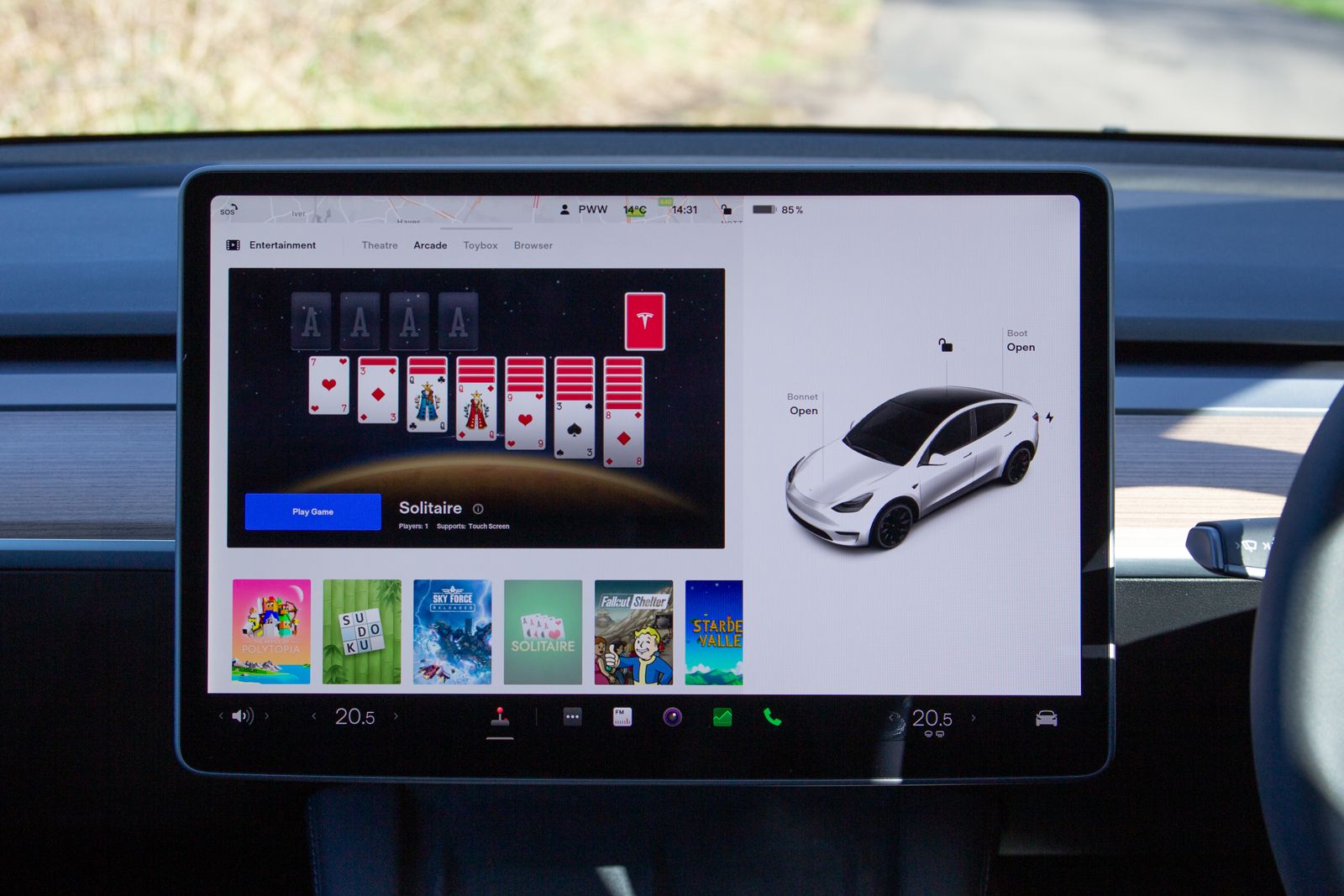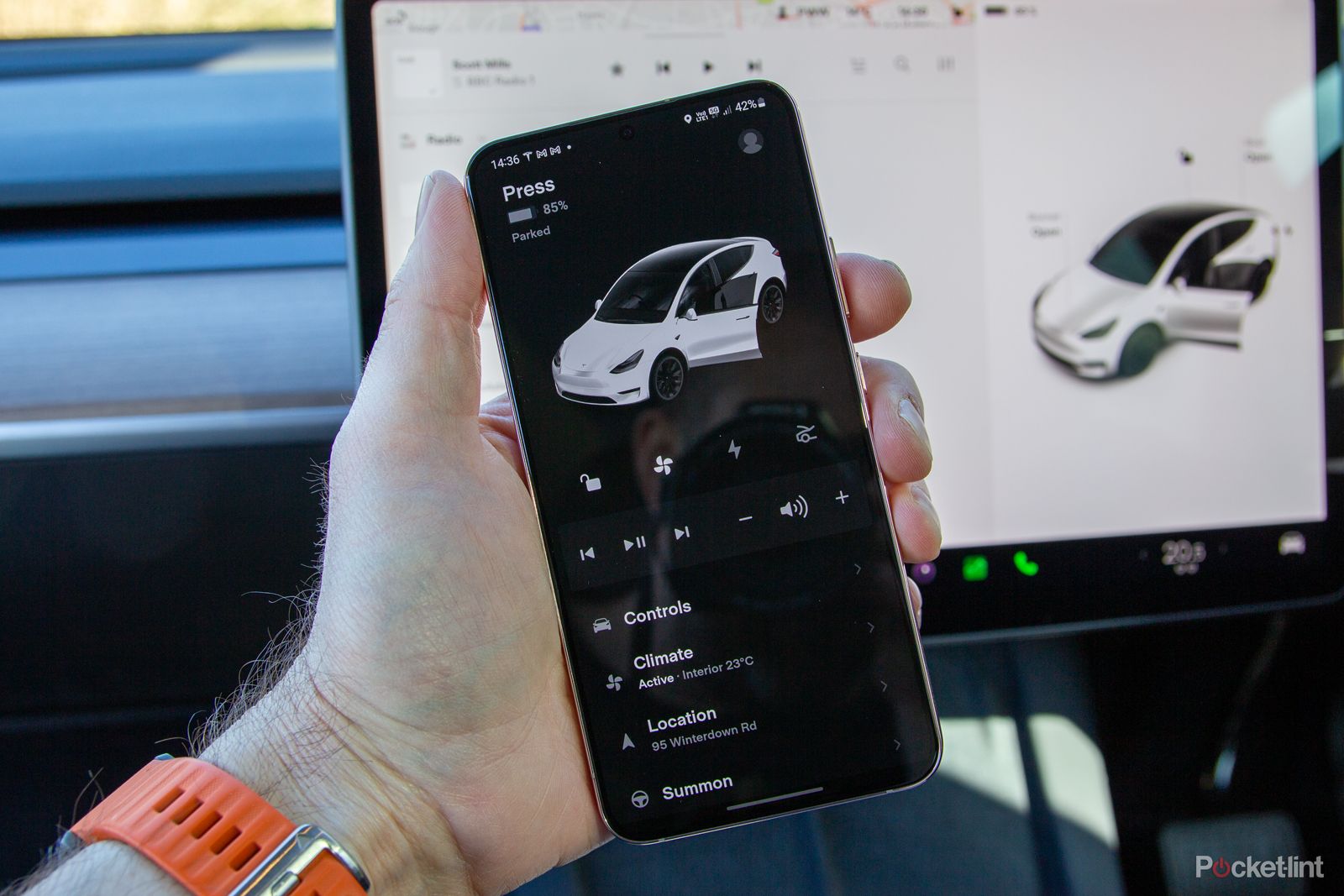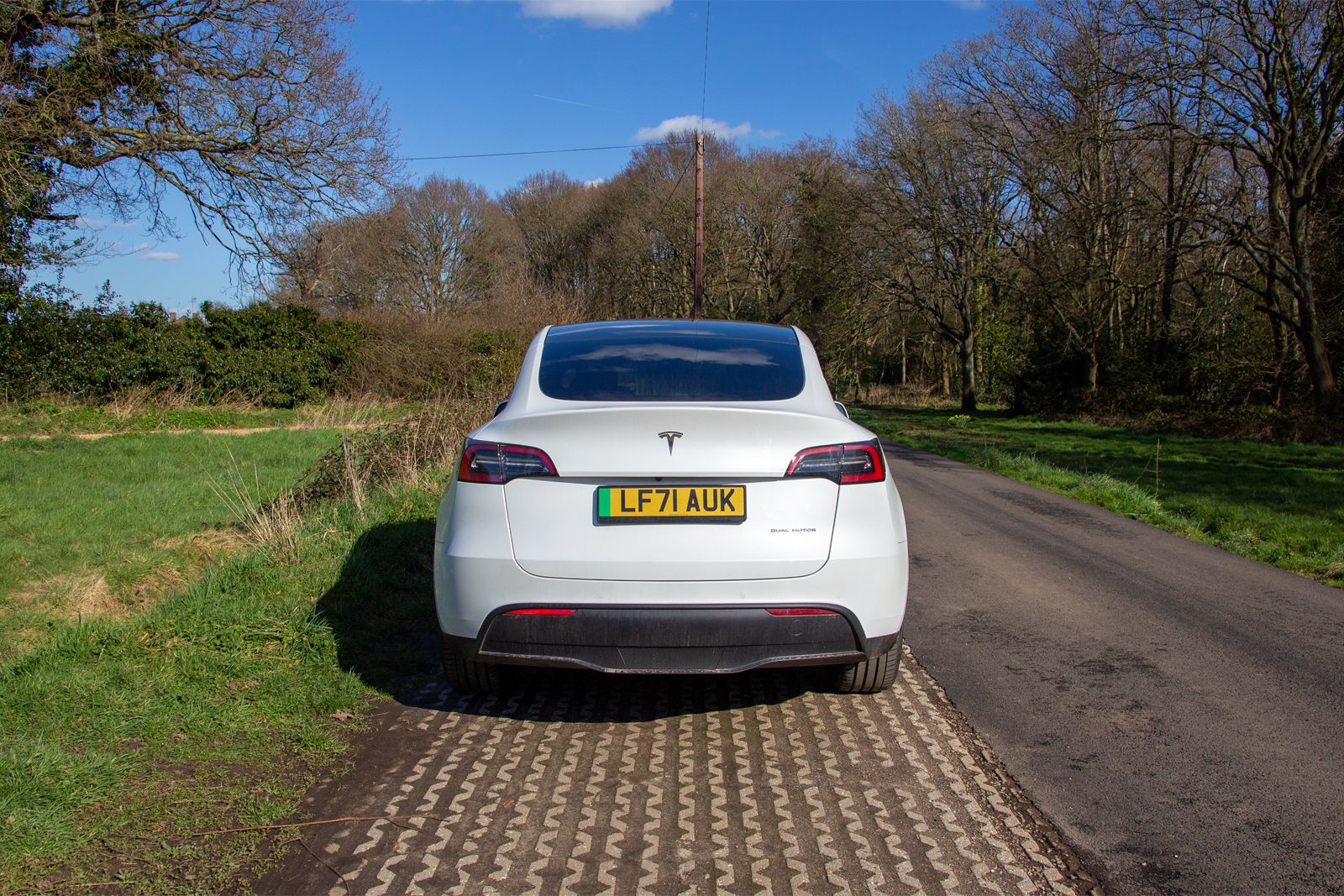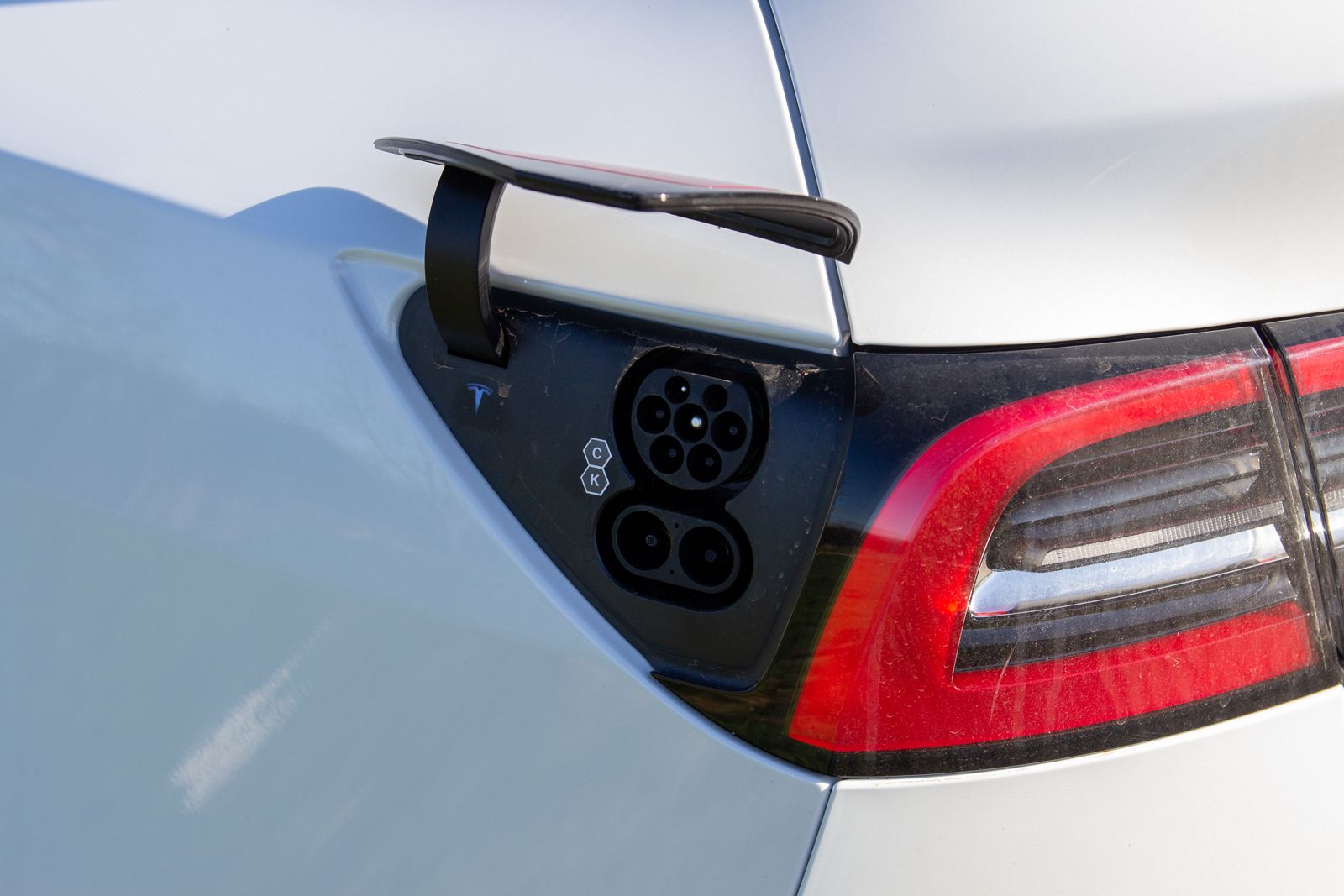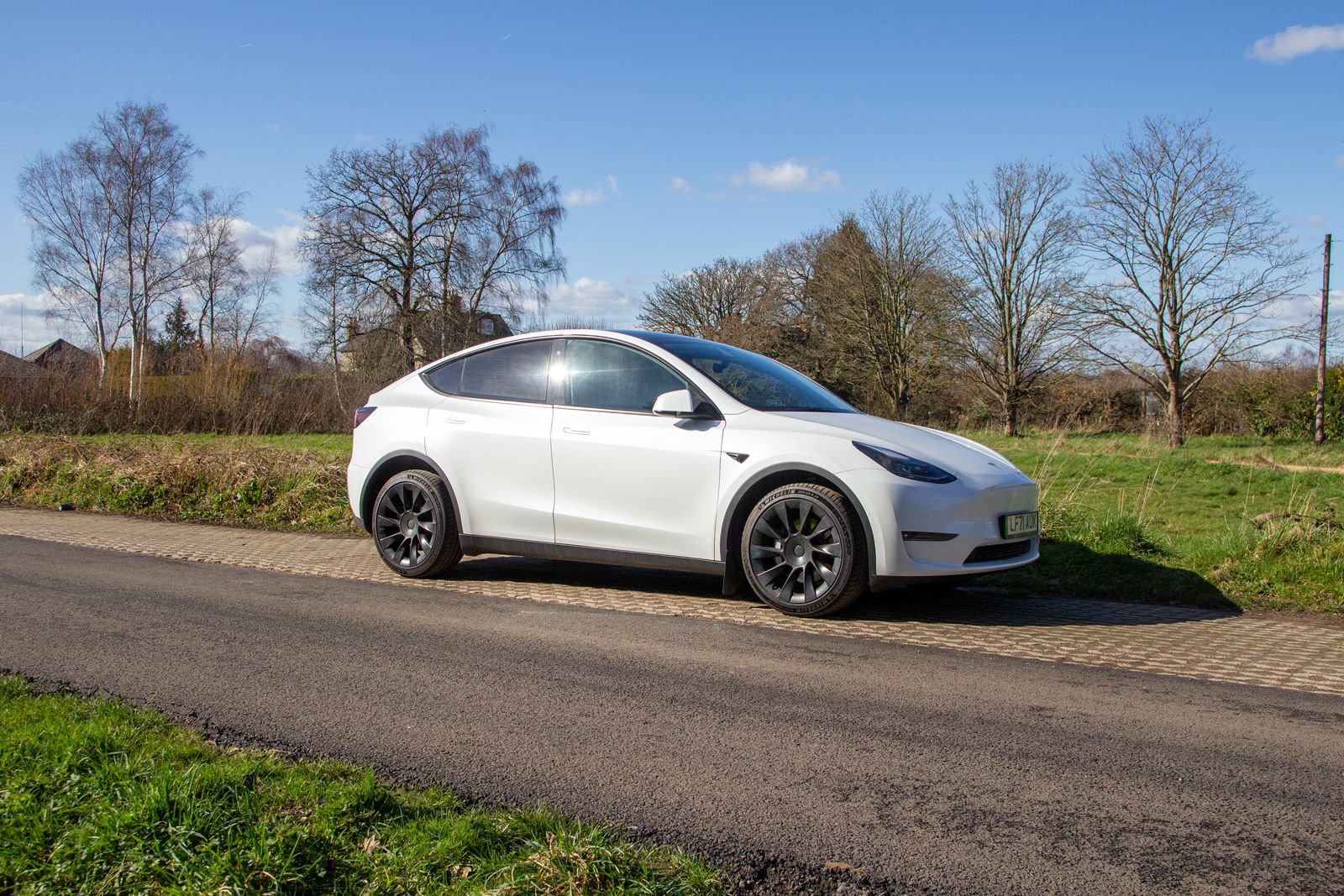Sitting between the Tesla Model 3 and the Tesla Model X is the Model Y: from the exterior it looks like the Model 3, while offering size that's closer to the Model X. So is it the best of both worlds?
While the Tesla Model 3 has had a huge impact on the market, based on buying choices in combustion segments of the market, the Model Y could be the car that more buyers want. It falls into the popular crossover space, in direct competition with a number of electric cars that have launched into this category over recent years.
With the Model Y finally arriving in the markets outside of the US, should it be on your EV shortlist?
Our quick take
The Tesla Model Y delivers on those core Tesla principles that have gained the company its notoriety: it's fast, there's long range, it offers the best charging network currently available, and there's a lot of fun to be had through the entertainment tech on the interior.
But at its time of arrival it now faces much stiffer competition than the Tesla Model 3 did - as the likes of the Audi Q4 e-tron and Hyundai Ioniq 5 or Kia EV6 provide excellent alternatives, in some cases at lower prices.
But part of Tesla's charm is that, well, it's a Tesla. There's no doubt that the brand has a huge cache and, for many people, it doesn't matter that other electric cars exist. If it's a Tesla you want, the Tesla Model Y is a car you'll be drawn to. At the same time, the Tesla Model 3 is more affordable and offers much the same experience, so could well be more compelling.
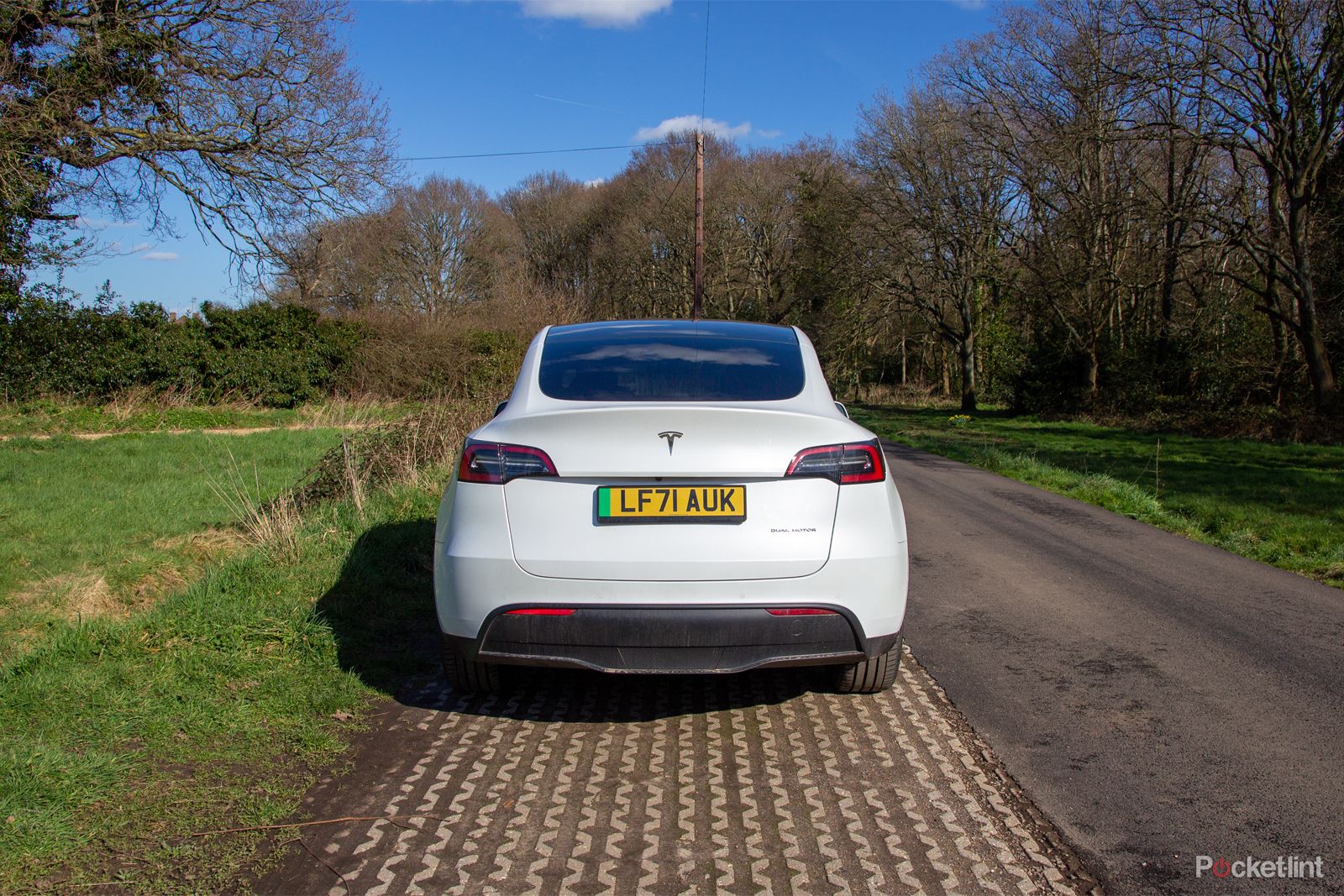
Tesla Model Y - 4.5 / 5
| FOR | AGAINST |
|---|---|
|
|
Design
When the Tesla Model Y was announced, many thought it was just a Model 3 with a different boot (trunk if you're reading in the USA), offering a hatchback-style opening rather than the saloon-style on the smaller car.
The similarity in visual design between the Model 3 and the Model Y is striking, but the scale is entirely different. The Model Y rides much higher, so rather than being low, sleek and sporty, it rolls like other SUVs.
That gives it immediate appeal, because you have that elevated advantage, able to see through traffic better among all the other SUVs, and offering that big coupé styling, with its dropped rear roofline.
Tesla's design has matured since the original days of the Model S, with sleeker and more minimalist lines: compare this to something like the Audi Q4 e-tron with its folds and details and it's less striking, but there's still something elegant about the simplicity it offers.
It's shown here on the 20-inch Induction Wheels. We think the larger black wheels look better - although Tesla suggests that the smaller wheels are more efficient when it comes to energy usage and may well make for a softer and quieter ride.
Minimalist interior
The interior of the Tesla Model Y is essentially the same as the Tesla Model 3. It takes that minimalist approach, free from buttons and controls, with unfussy panels and finishes.
There are few choices - the interior is either light or dark - while whimsical embellishments are kept to a minimum. That may attract some drivers - freedom from the mass of buttons and switches that other cars offer - or may seem a little alien.
The focal point is the 15-inch display in the centre of the car, and there's some sense that this car isn't designed around the driver - there's no driver display and that centre display isn't oriented toward the driver either - it sort of feels like you're a passenger, no matter where you're sitting.
There's a good reason for that: we've heard Elon Musk say many times that the car should be doing the driving, not the human, and that explains a lot of what you experience. Controls are reduced because the Model Y wants to do everything for you - the car wants it to be an automatic experience. On UK roads and under UK laws this isn't yet close to a fully autonomous vehicle though, the driver still needs to remain in control at all times.
For a new driver, having to tap around the display to adjust the height of the steering wheel using the unlabelled controllers on the steering wheel, or searching for a start button (there isn't one), might be unsettling. Instead, you're basically invited to switch to D and head off on your way. Once everything's setup and you're used to it, it's invitingly simple to just get in and drive.
In reality, the quality of the interior of the Tesla Model Y can't compete with some rivals. Whether you're taken by the clean design or not, it just can't match the quality of premium rivals: there's puckering around the curves in the stitching on the seats, for example; there's no parcel shelf in the boot to hide the contents; the rear seat backs seem a bit flexible at their ends where they are unsupported; the centre armrest doesn't seem fit flush when closed.
These details might not matter to you, depending on what you're used to driving, but they do give a sense that the interior better fits the slightly more affordable Model 3 than the more expensive Model Y. Of course, the counter-argument is that you're paying for the performance and range, instead of old-world interior charms, and that's also a valid position to take.
At first glance the boot doesn't appear to offer space to rival other SUVs, but some of that comes down to the decision to fit a flat false floor. Lift that up and there's a lot of additional space. In that sense, the lack of parcel shelf perhaps doesn't matter, because you can store things out of sight under the floor here anyway.
It also means there's actually a lot of space in the back - 854 litres if you pack it to the roof - and an additional 117 litres in the front under the bonnet (that's the hood, our US friends), so practicality remains a strength.
On top of that there's the advantage of having a car designed as an electric car, without having to accommodate old combustion architecture which you find in some rivals, like the BMW iX3. That means the interior is spacious, with good leg room and head space for the rear passengers. It's not the plushest rear bench, but there's plenty of room.
That all adds up to the Tesla Model Y offering a huge amount of practicality when it comes to carting around the kids, enough space on longer journeys, not to mention the fact that there's heating for the rear seats as well as the front, which is something that more brands should offer.
The technology offering
Yes, Tesla is well known for putting electric cars into the mainstream and pushing Autopilot - but before we get to those things, let's talk about the other tech.
The 15-inch display is the key to everything, it's where everything is adjusted, from the speed you want the wipers to actuate, through to all the other fun stuff, like accessing the entertainment selection.
At a basic level, the display has a split with the third nearest the driver showing the real-time detection of objects around you (cars, people, street furniture) as well as driving details (speed, speed limit, turn signal, lights) with the other two thirds basically given over to other functions, like navigation or media.
The display is huge and that means plenty of space, although having to look into the centre of the car to see basic details is bit of a pain - we'd much rather have a heads-up display (HUD) showing navigation and speed if Tesla wants to keep the slight line free of physical displays.
That has a slight knock-on effect when it comes to navigation. The instructions are clear, the route guidance is good too, but you don't get the sort of 3D mapping view that others offer. If you're relying on the map, it's mostly a top-down view and that's not always the most friendly to use.
It all sort of makes sense if you remember that Tesla really wants to drive you and not the other way around. That explains the lack of dials and other driving information too. It's designed so you place your faith in the car.
There's no support for systems like Apple CarPlay or Android Auto, but Bluetooth will open calling functions when connected to your phone, with the car's connection handling the rest. In reality, Tesla's platform is pretty good and offers just about everything you'll want - and a whole lot more that you didn't know you wanted.
That extends to the likes of Netflix, a whole suite of games, and other apps like Tidal or Spotify, plus other entertainment, including fun/bizarre things you can get your Tesla to do, all hiding inside the Toybox.
There's a full range of cameras on the car which you can access at a tap to see around you - it's not quite as fancy as the top-down views some cars offer for parking - but it all works well enough. There's also dashcam capture, which you can go back and look at, as well as Sentry Mode, which does exactly what it says: monitors the environment around the car and is able to alert you via the Tesla app on your phone.
That app is a useful addition. It's pretty simple, relaying information about your car, but can also handle locking, unlocking and give you information about the car remotely, including the option to cool or heat the interior and so on.
Finally, it's worth mentioning that there are two USB-C connections in the front as well as two wireless charging pads, which are handy. The sound system is really good, too, with the subwoofer providing plenty of bass.
On the road
Tesla has a focus on speed and the Model Y (in the UK) only comes as a dual motor option at the time of writing, either Long Range or Performance. Essentially, there's no slower version and with a 0-60mph speed of 3.5 seconds on the Performance, the Tesla Model Y will leave almost everything in its dust.
Even the 4.8 second time of the Long Range is frighteningly fast in real-world driving and you'll be forgiven for switching over to chilled acceleration instead to make the throttle less sensitive.
There's a big battery in the Tesla Model Y, at 75kW, and the range is given as 331 miles on the Long Range. That would need it to average around 4.4 miles per kWh. Tesla doesn't report figures using this measurement, but through a conversion, we can see that recent trips averaged from 2.9 miles per kWh up to about 5.5 miles per kWh, which would equate to anywhere between 217 miles and over 400 miles.
The actual range depends on a lot of factors - how you drive, how the car is loaded, the temperature, and so on. The disadvantage of driving a media test car is that reviewers are often interested in performance and so drive it aggressively, which returns poor ranges and averages, while typical driving in traffic with plenty of stop-start - and avoiding those fast acceleration bursts - is much more economical.
While many will charge at home - needing 21 hours to fully charge on a typical 7kW wall box - one of the big advantages that comes with Tesla is the availability of the Supercharger network. This often results in many rapid chargers on major routes and the coverage is currently better than most other third-party chargers.
The thing that's really attractive about the Supercharger network is that the car knows where these are and will incorporate that into navigation and that the car will precondition the battery for charging as you approach the Supercharger.
Once connected, the car does all the handshaking and the cost is then charged to your account - there's no messing around with RFID fobs, using credit cards or apps on your phone. It's the best charging experience for electric cars, it's as simple as that.
It also supports up to 210kW charging which is really fast - if you can find chargers that support that rate.
On the road the Tesla Model Y is a little noisy, with road noise coming from the rear of the car particularly, while the suspension isn't particular adept at dealing with broken road surfaces, so it's a little unrefined for cars in this price bracket.
The turning circle also isn't the smallest, so manoeuvring the car into tight parking spaces in the UK feels like a little more effort than it should be - it feels like a car designed for the US, which it is.
But at the same time we find the Tesla Model Y a relaxing car to drive. The ease of Autopilot use is a big factor here, being able to activate it with a twitch of the stalk on the steering column is so much easier than some systems that offers a huge range of buttons scattered across the steering wheel.
Although there's a lot of talk about self-driving capabilities, Autopilot remains a driver assistance system and should be treated as such. While it works really well on the motorway, if you're driving on smaller twisty roads, anything with roundabouts (which is basically any UK or European city) you're better off just driving the car yourself.
To recap
The Model Y delivers on those core Tesla experiences - it's fast, it offers great range, and it's supported by the excellent Supercharger network. This is also a car that offers plenty of practicality. But priced as it is, it can't compete with the interior quality of its rivals and some might feel it's a little overpriced as a result.

